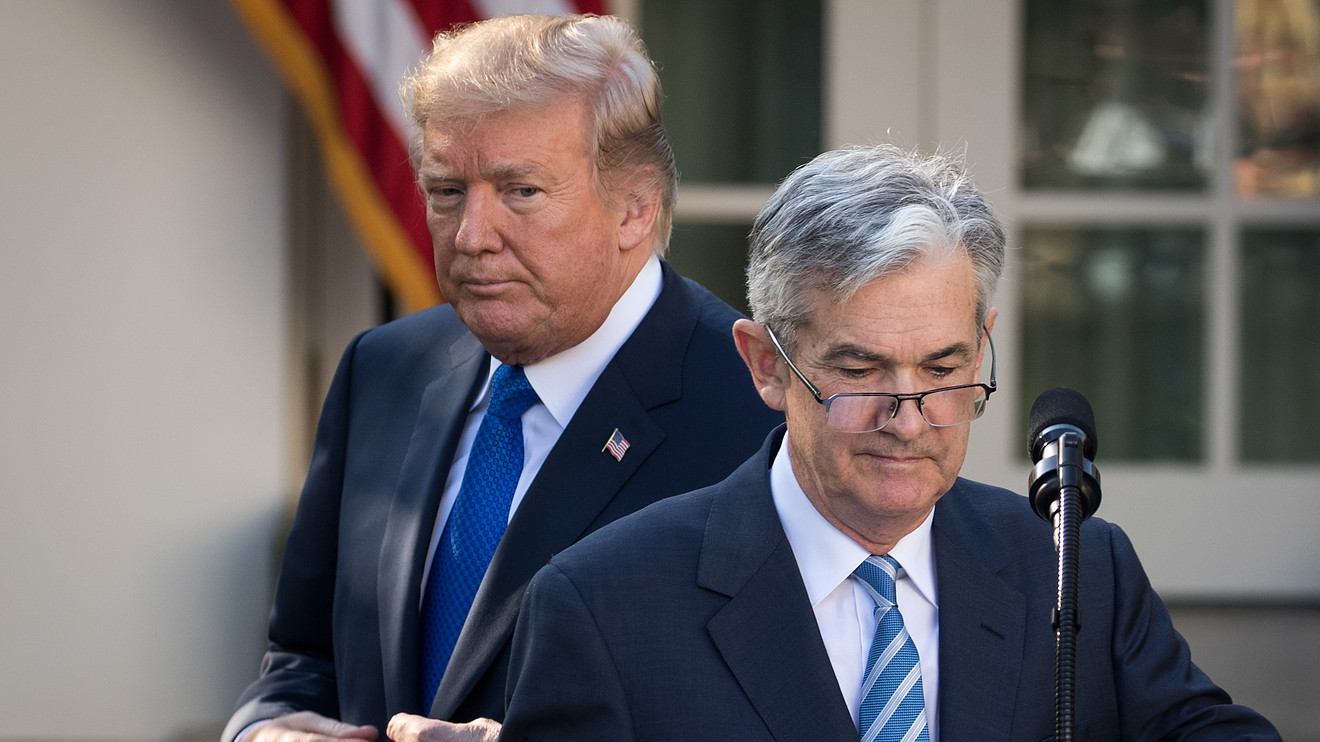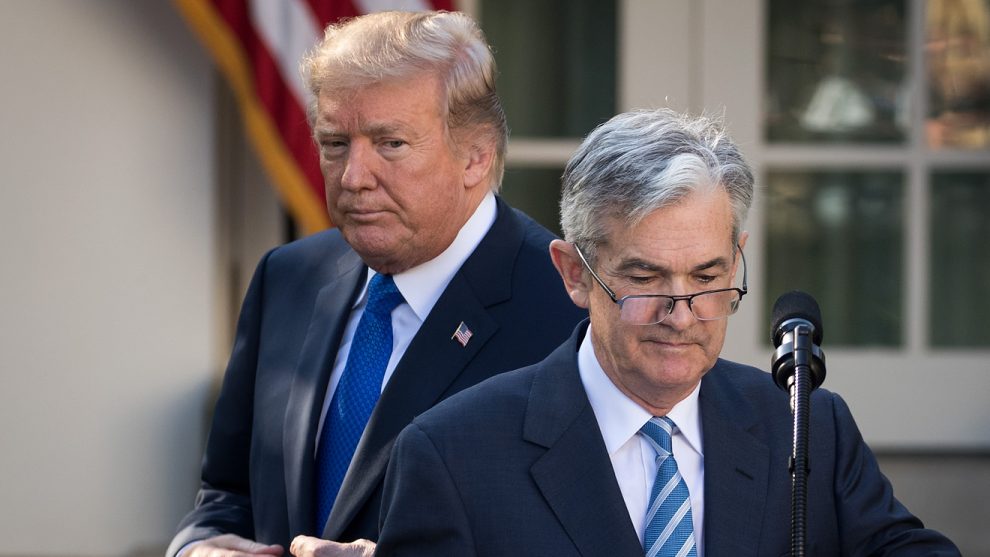
Last week, President Trump stunned Wall Street when, within a day of a quarter-point cut in the federal-funds rate by the Federal Reserve, he pledged to slap 10% tariffs on $300 billion in Chinese imports. On Monday, when the yuan fell below seven to the dollar, the U.S. declared China a currency manipulator, in a major escalation of the trade war.
In the five trading days ended Monday, the Dow Jones Industrial Average DJIA, +0.79% slumped more than 1,500 points, the S&P 500 index SPX, +0.93% lost almost 6%, and the Nasdaq Composite Index COMP, +1.39% plunged nearly 7%. Monday was the worst day for stocks so far in 2019. (U.S. stocks recovered somewhat early Tuesday.)
Besides putting more pressure on China, I believe Trump’s escalation of the trade war is aimed at trying to push Fed Chairman Jerome Powell to cut rates more. The president’s many attempts to control Fed policy threaten the central bank’s independence and present a grave danger for markets and investors.
Read Tim Mullaney: This time could be different: Trump might not back down and calm the markets
Since appointing Powell in 2017, the president has tweeted some 40 times about his displeasure with the chairman for not cutting rates fast enough to keep the economy growing, sometimes even threatening his job. (Powell has politely but firmly pushed back.)
Trump has opined on Fed policy far more than any recent president in what is becoming a war of words against the Fed’s independence. He also has tried to appoint Fed governors who share his views on rates — like supply-side shill Stephen Moore and current nominee Judy Shelton — and who may be amenable to presidential influence once they’ve been confirmed.
Wall Street is in denial over what could be the potential erosion of the Fed’s independence. It’s also largely escaped the attention of the media, which is caught up in the president’s many tweetstorms, not to mention mass shootings and the Democratic presidential horse race.
Fact is, President Trump needs the economy and markets to stay strong as the 2020 presidential election approaches, and he thinks rock-bottom interest rates are the way to do it. If Powell caves, even implicitly, to the president’s relentless pressure and keeps cutting rates over the next 16 months, that may help prop up stocks for a while.
But especially if President Trump is re-elected and appoints a toady as Fed chair in 2021, the effective end of the Fed’s independence would likely heighten volatility, end the current bull market, and even lead to a secular bear market like the one in the 1970s when President Richard Nixon’s meddling in Fed policy helped stoke that decade’s Great Inflation. I don’t see a new wave of inflation coming, but the erosion of the Fed’s independence would destroy its credibility and leave investors badly adrift.
The Fed has been independent from political interference from its beginning. Though its mandate was revised by Congress in the 1970s to promote “maximum employment, stable prices, and moderate long-term interest rates,” neither Congress nor presidents of either party have tried to micromanage monetary policy.
Watch this video: Why small businesses could be the biggest losers in Trump’s trade war
The one exception: When he faced reelection in 1972, Nixon pressured Fed chairman Arthur Burns to lower rates in an already overheated economy, declaring: “I hope that independently he will conclude that my views are the ones he should follow.” Predictably, inflation soared and Chairman Paul A. Volcker had to clean up the mess by hiking fed funds to 19%, bringing on the deep 1981-82 recession. Since then, presidents may have gnashed their teeth at Fed decisions but they publicly supported its independence.
Volcker and every other living former Fed chair warned of President Trump’s threat to the Fed’s independence in an opinion piece published in Tuesday’s edition of The Wall Street Journal. In it they wrote that “research has shown that monetary policy based on the political (rather than economic) needs of the moment leads to worse economic performance in the long run, including higher inflation and slower growth.”
In addition, they noted that even the perception that decisions are influenced by political threats can undermine public confidence, which in turn “can lead to unstable financial markets and worse economic outcomes.”
Read: Former Fed chiefs make case for independence without mentioning Trump by name
Donald Trump doesn’t support any government entity’s independence from him. Remember how many times he trashed Attorney General Jeff Sessions until he ultimately hounded him out, replacing him with William Barr? He also pushed out Dan Coats, the independent-minded director of national intelligence, and suggested as his successor a sycophantic congressman, Rep. John Ratcliffe, a Texas Republican, before reversing himself within days.
He’s following the same playbook with the Fed, but so far Powell isn’t cooperating. The president looks like he’s playing a game of chicken in which his trade war weakens the economy enough to force Powell to cut rates. The risks of this strategy are enormous: The last global trade war, following the Smoot-Hawley tariffs of 1930, only deepened the Great Depression.
What’s also at stake are the 40 years of (mostly) growth and prosperity underwritten by central bank independence. During that time, investors were confident that even if the Fed didn’t get it right all the time, it was at least responding to markets and the economy. A Fed under the control of any politician, especially Donald Trump, is a Fed so unpredictable it would cause investors to abandon stocks and hide in “safe” instruments like cash and Treasurys. It would also be bullish for gold.
Once Fed independence has been breached, it’s hard to put the genie back in the bottle. As with his racist rants against immigrants and congresswomen of color, in this area, too, the president is playing with fire.
Howard R. Gold is a MarketWatch columnist. Follow him on Twitter @howardrgold.












